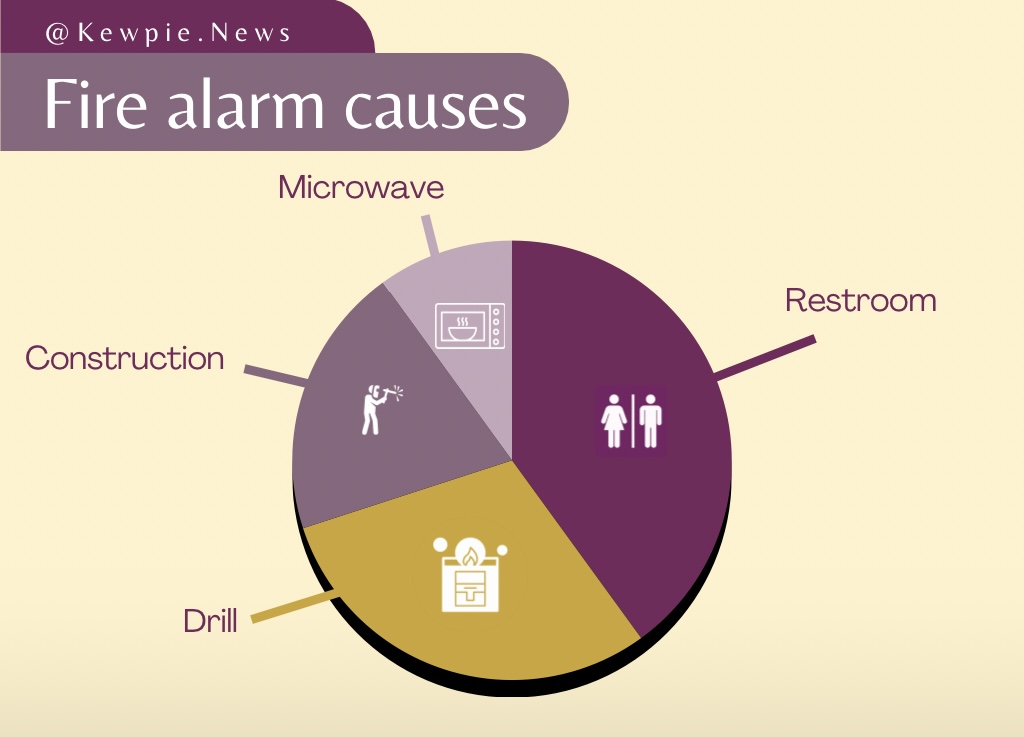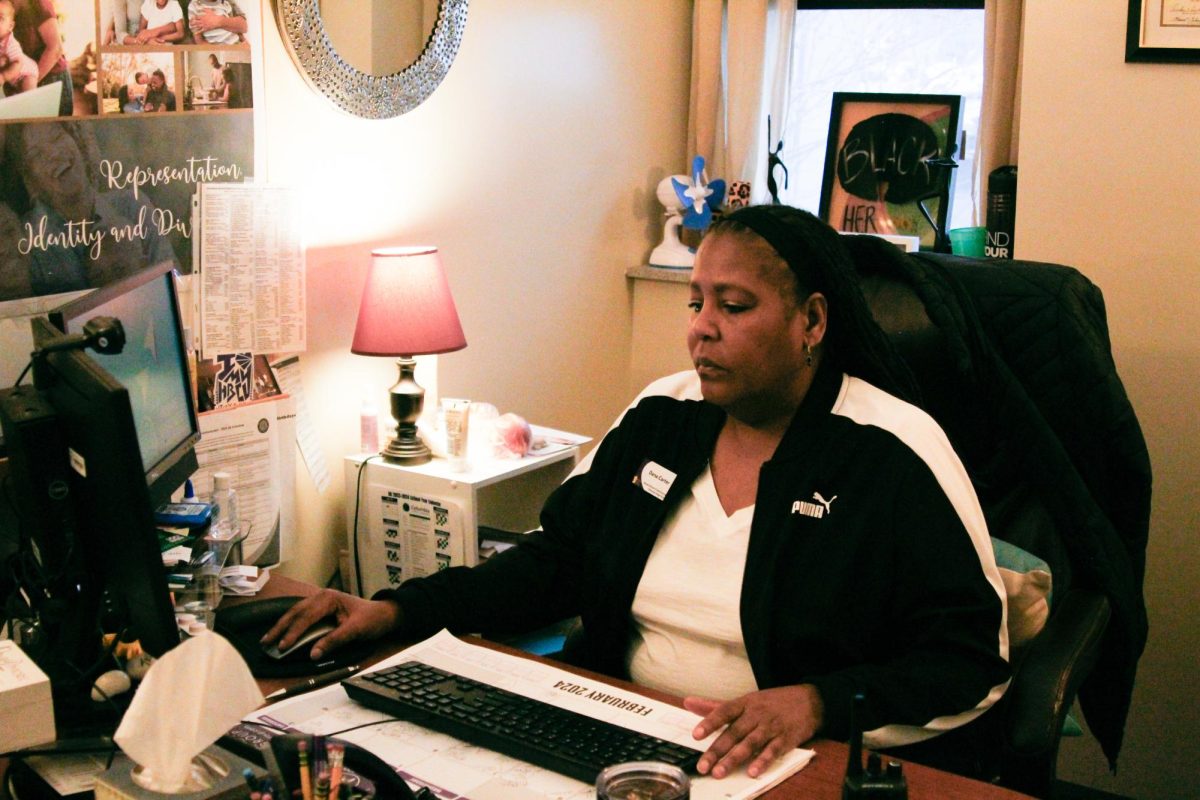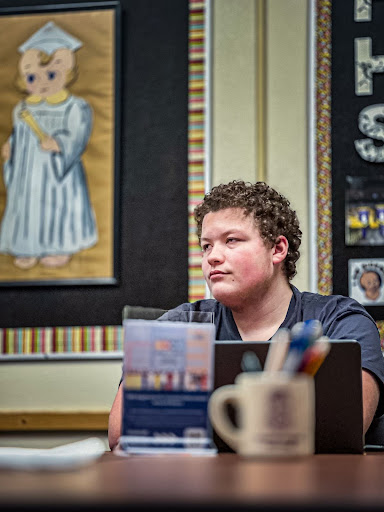When Home Meets Hickman
It is often assumed that high school students live at home with their parents, but do they really?
Students come from a variety of backgrounds that are often more complex than one might think. Traditional households are common, but not what all students experience during their four years at Hickman High School. Many students have, or are, for various reasons, living with roommates, friends, or by themselves while still in school. Why is this? It is often assumed that those who don’t live with their parents while finishing out their high school career have been kicked out or left on bad terms. However, many justifications have been made for why kids may choose not to live with their parents in today’s day and age.
The most prominent explanation found for why kids move out is actually their parents moving. The parents of kids get married and move, are hired to out-of-state jobs, or decide to relocate for other reasons. Senior Rhiannon Larson’s mom is moving back to her home state of Minnesota, which has now left Larson with the ultimatum of either moving back to Minnesota, midway through her senior year, or finding a place to live in Columbia. Larson is taking this difficult proposal in stride, explaining why she’s making the decision that she is.
“So I’m moving out so that I have a little bit more freedom and can learn what it’ll be like when I have to move ten hours away from my family for college,” Larson said.
Larson has been accepted into the University of Nebraska, which is several hours away from where her family will be located in Minnesota. She knew that she would be living far away from her family next year, so this early departure might not be as unsettling as one might expect.
“I think the best part of living by myself will be how much I’ll learn about being independent – making sure all my bills are paid, that I have enough food to eat, etcetera,” Larson said. “While that will be a huge learning opportunity that is also going to be one of the biggest challenges.”
Larson does acknowledge that things won’t be handed to her for free and that she will have to work hard to make sure everything works out in the long run. Being able to work enough to afford rent and other necessities is something that Larson has taken into consideration when planning out her senior year.
“I’m only doing part time in school so luckily that will free up some time so I can work and pay my bills,” She reveals, “It’ll just be a balancing act to get classwork and actual work to coincide.”
Larson is confident things will work out for her in the end. She points out her ability to be sensible and practical with her money if need be. Maturity, stability, and an ability to be efficient independently are all things that Larson values.
“Have a plan already set so you can show your parents that you’re responsible and can handle all of the responsibilities,” Larson advises to those considering moving out, “Make sure you’re in a financial situation that will accommodate you well. If at all possible, I’d advise saving lots of money before you plan on leaving just in case things get strapped for a few months.”
This preparedness and thorough consideration seems vital to successfully moving out. Having a strong support system might also be something that one considers before deciding to leave home. A counselor at Hickman High School, Robin Hogan, also holds some of these beliefs.
“If and when we know about it, we certainly want to be a support to them,” Hogan explains, “Personally, if I know a student is in one of those situations, I ask them to try and check in with me often.”
Hogan emphasizes the need of a strong backing, whether it be from friends, family, or the school itself. Most kids can get some source of support from their homes and so when their home life changes, they should really consider, once more, who they can lean on in times of trouble.
“Teens need to not be naive about the fact that that family support is critical to them being successful,” Hogan said. “It doesn’t mean they can’t be successful, it’s just that we all need help at one point or another, and our families are in general a good source of that. Not always, but usually. And you know, if we [counselors] know about your situation, we try and check in. We can’t replace the parents but we try to be a support system because school can be a support system too.”
Likewise, Hogan acknowledges that when teens turn 18, it isn’t uncommon for parents to tell their kids that they need to go to college, move out and get a job, or pay rent if their kids want to continue living with them.
Hogan expands her interpretation on whether or kids can move out on good terms.
“At 18 I think even though you guys are considered adults, you still need support, so I don’t necessarily like it, but are there are a lot of times where it is mutual,” Hogan said. “Every student situation is unique, and if there’s a kid that’s in a situation where it’s better for them to not be at home, then sometimes that’s the case.”
Similar to Larson, Senior Katie Kim was faced with the choice of moving out of the Hickman district with her mom for her senior year, or finding somewhere in Columbia to live. Not wanting to leave behind many friends and teachers with whom she had grown close to, Kim decided to stay in her current home. Here, her sister and her sister’s roommate moved in. This allowed Kim to stay in Columbia – something she’d been hoping for – and at the same time, gave her some extra responsibilities. Taking these new responsibilities and freedoms hand in hand, Kim discussed her views on living on her own.
“I mean you do what you want, but also, what are you going to do, you know?” Kim said. “You have to take care of yourself. You’ve got to do homework and go to bed; go to work. If anything, I think it taught me how to take care of myself more.”
Kim also points out some inconveniences and troubles that a lot of people might overlook when it comes to the case of a teen not living with their parents.
“It’s definitely a big change,” Kim said. “I think you don’t realize how big of a change it’s going to be until it happens. You’re like, ‘Oh that’s totally fine, it won’t be any different,’ but then you look back and you think, ‘wow, it’s really different.’ It was just nice when I didn’t have to worry about little things, like when I came home and dinner was just done, there were groceries in the fridge, and I didn’t have to go out and buy groceries.”
While things have definitely changed in that last year of Kim’s life, she still believes she’s still almost like any other teen her age.
“I’m obviously still connected with my mom so she helps me out with stuff if I ever need it,” Kim said. “I’m not 100% independent by any means but that’s alright. Honestly, I don’t think my life is really any different now that I’m not living with my parents.”
When it comes to living on your own, it might take a certain kind of person. If parents have never really given a teen the opportunity to do things independently, the teen might not be as prepared to live on their own, as compared to those who have had more lenient parents.
Kim was conflicted when it came down to deciding on whether or not someone would be able to live by themselves.
“It honestly depends on the person,” Kim said. “Growing up, I was given a lot of independence and autonomy when it came to taking care of myself and making my own decisions. So for me, the situation was nice in that sense, but also, it was a struggle in a lot of other ways where like you do have to kind of learn to take care of yourself. You have to learn how to live a healthy lifestyle without somebody just guiding you through it all. I think it really comes down to how well you can prioritize and be responsible without someone telling you to be responsible.”
A parent allowing their child to live on their own might be an indication of their trust in their kid, and whether or not they think their kid is responsible and mature enough to handle living by themselves. By parents letting their teen move out, can one see an indication of an abundance of trust or a lack therefore of in their child? When one thinks about kids moving out or not living with their parents, one rarely thinks about how this change affects the mother or father of the child.
After one parent of a Hickman student obtained a job out of state,the father of the student admitted that his fear of letting his child move out was big, it wasn’t enough for him to not let her go.
“It scared me, I was apprehensive, and I worried about them,” he said. “On the other side of that coin, for their age I knew they were responsible and mature. I knew they weren’t going out and drinking and driving and doing drugs, so those things didn’t concern me.”
The father of the high schooler further justifies his point, claiming how difficult it was to make the conclusion he did.
“Ultimately, I can’t say yes or no for them, the other parents,” he said. “I wrote down the pros and cons. Every situation is different…For me, it was the hardest decision as a parent I’ve made in my life.”








































